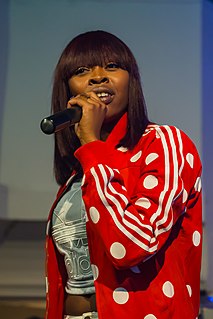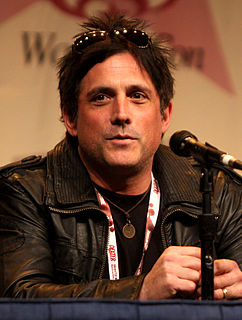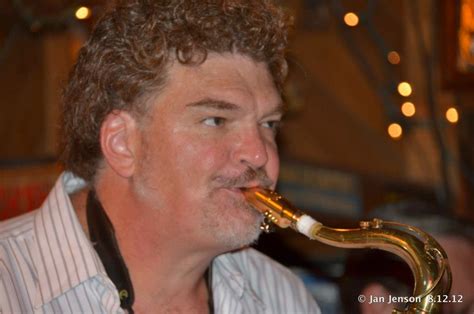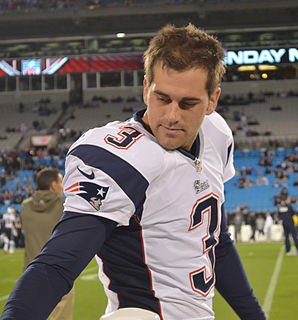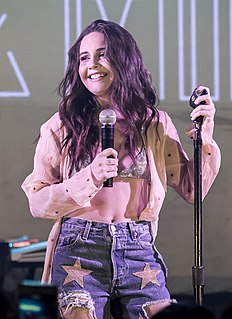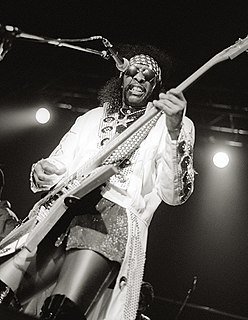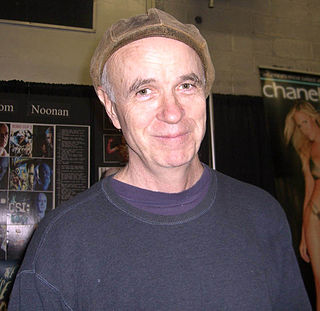A Quote by Tracy Morgan
America doesn't like to hear about things like welfare. 'Don't talk about that. We don't like what it did to people!' Yeah, but it happened.
Related Quotes
When I'm rapping, like, a turn up song, I'm thinking about what the people want to hear; this is what they're going to like. When I'm singing, I'm, like, telling my story. I'm not worried if people like it; I'm just trying to be truthful, you know what I'm saying? I'm just talking about something that happened to me.
I believe in the human spirit. And usually the people who are following me - my fans and things like that - are like-minded people, in that regard. They like to hear about people being in pain, but that are okay, and people feeling like they can't go on, but then they find a reason to go on. How do you marry someone and love them, and then they die? How does that happen? Why are we on this journey? They want to talk about things, and they want to understand. So, this is the perfect vehicle for that.
I'm not really interested in rappers who talk about rap. I don't talk about it, and I don't like listening to other people talk about it. So I stick to the things that I know. You know, things like cars, ultimate fighting. I have a lot of songs about cars, because they're a big part of my lifestyle.
You're allowed to make things for women on television, and there's not like... you don't have to go through the humiliation of having made something directed at women. There it's just accepted, whereas if it's a feature, it's like 'So, talk to me about chick flicks.' It's like... I don't think you want to hear my opinion about this.
If I'm throwing a no-hitter and someone says, 'Hey, you've got a no-hitter,' obviously I'd be like, 'Yeah, I know.' I just try to be humble. I don't like to talk about myself. I have no problem speaking up when I screw up, but if I'm doing good, people are going to notice. I don't need to talk about it.
I always wanted to have a young female artist that would tell me the truth about life and not only talk about the good things or the things that were exciting or interesting but also talk about the things that people in general are skeptical to talk about- the bad things that do happen. A good 50% of our lives is things that are happening that we're not necessarily super thrilled about and I feel like that's missing from pop music a lot of the time so my main goal is to be truthful about everything and not just specific things.
I think it's really easy for people to point out hypocrisy in people's lives. It's like yeah, I get on planes a lot, and I drank from a plastic water bottle today - you know what I'm saying? A lot of people would just be like, "Oh, you're a hypocrite. You live in an ecovillage for a month, and then you fly around the world to talk about a movie." Don't think that I don't think about those things! Don't think that that's not, like, a quandary in my life. It can be a pretty intense ethical dilemma. I think it's about figuring out, you know, navigating life.
. . . the whole idea of WHAT HAPPENED WAS.... is not about dating. It is more about people who are not committed to who they are or are indifferent about their life in general, which is how I felt about myself when I wrote it. I had turned 40 and I was unhappy and I wanted to write about that. Dating just became the framework. . . . I like all those fringy, weird, nonverbal, quiet, tiny little things, those powerful interchanges between people, things that go unsaid, that people know are happening all the time but nobody wants to talk about. That's what I want to make movies about.

